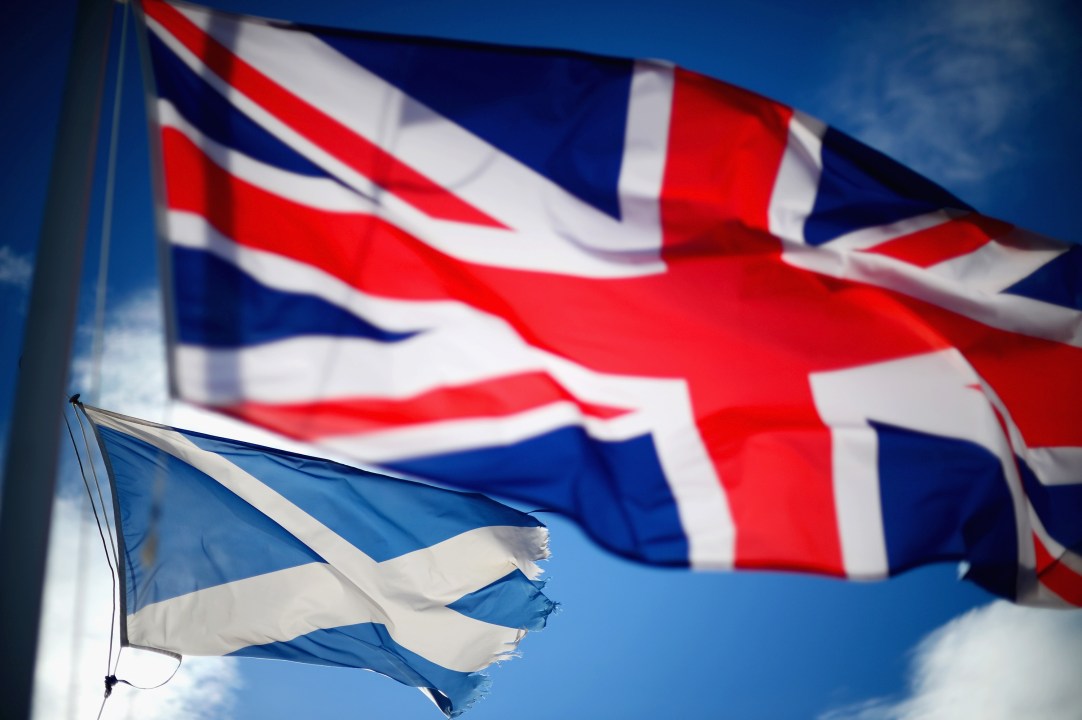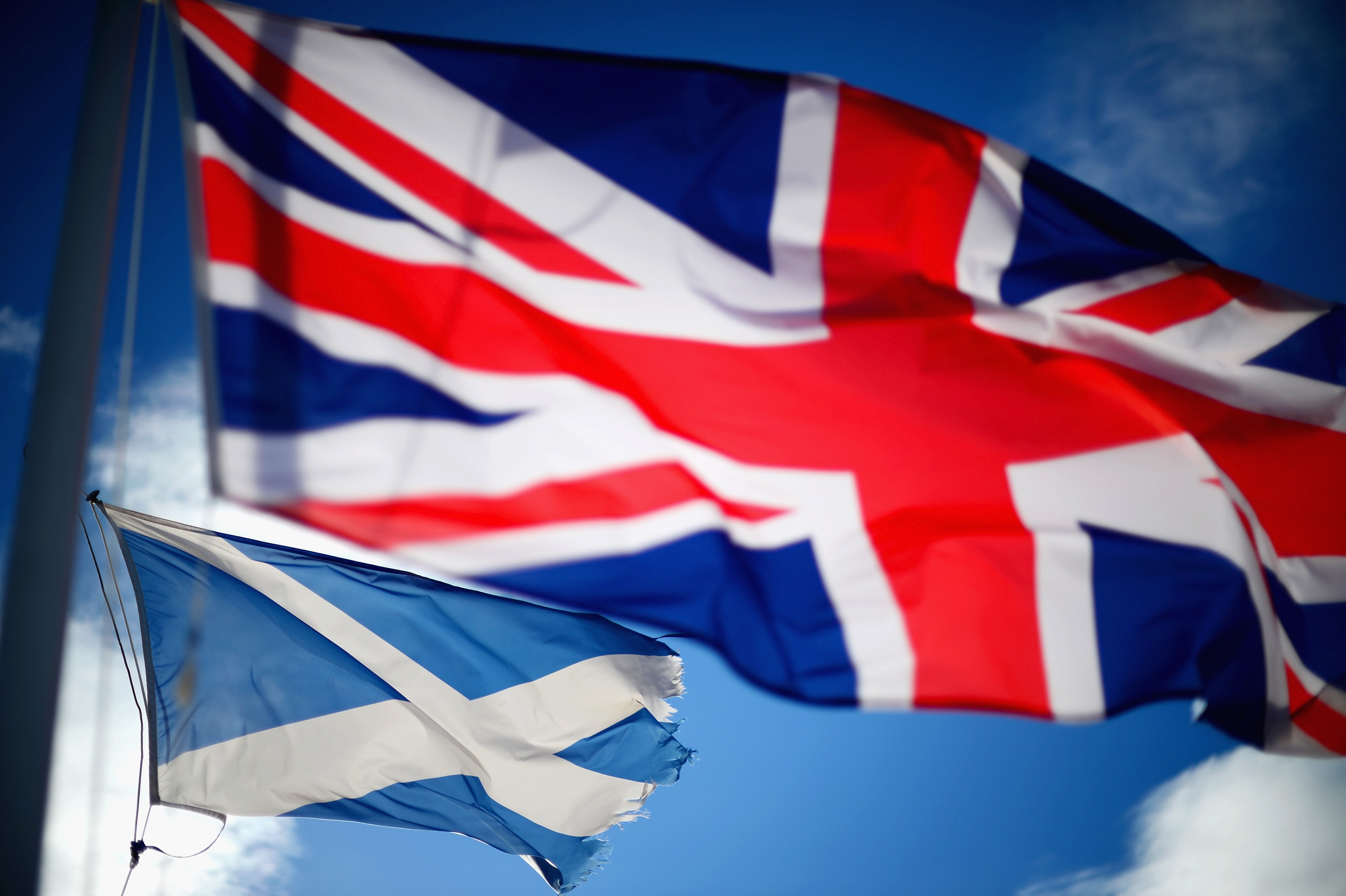Gulp. But what about England? That’s one of the questions to be asked in the aftermath of the latest Scottish spending and revenue figures, published today. The figures do not lie. Even when North Sea oil figures are taken into account – a geographic accident that, while welcome, remains an unearned accident – England (as a whole) subsidises other parts of the United Kingdom. This is a good thing. This is the way it is supposed to be.
But – double gulp – shouldn’t Scotland be subsidising other parts of the UK too?
Identifiable spending per capita in Scotland is a bit higher than in Wales, London and north-eastern England, quite a bit lower than in Northern Ireland, and much higher than in southern and eastern England. Again, as needs to be repeated frequently, some of this spending is entirely reasonable. It costs more, per capita, to provide education, health, transport and so on in sparsely populated parts of Scotland. Scotland makes up less than a tenth of the British population but fully a third of the landmass.
But, still, £800 a year more per person? Sure, many of these figures are estimates and it is difficult to be as precise as the numbers claim. They remain, however, the Scottish government’s own figures.
Even so, the SNP are correct to argue that Scotland is a wealthy nation. Correct, too, that it could manage as an independent nation. There’d be no need to rely on a diet of neeps.
Still, the argument coming from Labour today is that we’ve moved on from talking about independence. Now we’re talking about fiscal autonomy and the Barnett Formula. Well, perhaps. I think we’re actually talking about both these things.
The SNP’s submission to the Smith Commission called for the devolution of most taxation powers to Scotland. This would, naturally, include oil and gas. In return for self-sufficiency within the UK, the Barnett Formula would, of course, go.
That’s not, at least not today, a very attractive fiscal bargain. Oil prices will not remain this low forever but nor is it wise to base future revenue projections on an average price of $113 a barrel.
But – and this is the ticklish part of the matter as far as the SNP are concerned – the nationalists spent the last two years telling Scots they’d be richer after independence. An independent Scotland could borrow less, spend more and tax just the same. Indeed, they were fond of saying that relatively-speaking Scotland was wealthier than England. We might even be subsidising the fortunate English.
Little of this is actually true but that’s a mere detail. Consider, instead, the logic of the SNP’s own position. They believe in redistribution. Or say they do, anyway. They are a party, they keep telling us, of the left. Nothing like those dreadful twins, the Red Tories and the Blue Tories.
Fine. But this in turn means that, according to their own analysis and within the United Kingdom, they should admit that Scotland should be subsidising other parts of the realm. Scotland, after all, is rich enough to do so.
Yes, even though there are terrible social problems in some parts of Scotland. (There are terrible problems in parts of London too but only parochial Londoners think it unreasonable that the wealthiest part of the UK helps pay for services in less fortunate parts of the kingdom.) Overall, on average, Scotland is pretty well off.
Which means that Scotland does better than it would on any needs-based assessment. At present, anyway. No Scottish politician of any party is going to admit this but there is, nevertheless, a good argument that Scotland shouldn’t receive as generous a share of UK revenues as is presently the case.
(That Scotland does do so well is tribute, of course, to the strength of the Scottish lobby. And, yes, to the threat of independence/secession/separatism/freedom/whatever. A kind of blackmail, to use a good, old, Borders word.)
As I say, no-one will volunteer to give that up. For Labour, this extra spending is proof that pork-barrel politics wins. For the Nats, it’s simply a birthright thing. And even the Tories have no desire to cut their own throats (again) north of the border by admitting, even softly, that Scotland should get less cash.
But she probably should. Tim Montgomerie wrote a thing for (the excellent) CapX last month in which he observed that the Union cannot be held hostage by the Scots or stuck together with a kind of bribery. Now Tim enjoys splashing petrol about the place but there was enough truth in his analysis to wound. He listed ten areas and/or groups that merited more attention from the UK government than they receive. More attention, even, than, OMG, Scotland. In their different ways, each is poorer than Scotland; none have as powerful a lobby championing their specific interests.
The Union is changing. Or rather, it must change. It needs to be built, as Tim says, on fairness. That doesn’t mean the English – 85 percent of the population – are victims. That would be a very silly thing to believe.
No, I mean only this: Scotland is in an unusual position. It is, thanks to oil (at least for the time being) an above-average contributor to UK finances but also an above-average recipient of those finances. The only other part of the UK where that is true on a per capita basis is London and there the disparity between what London contributes and what it receives is, er, considerable.
Of course, the picture is a little more complicated than that. Scotland is chiefly an above average contributor because of the oil money. Take that away and the on-shore Scottish economy is strikingly close to the UK average as a whole.
The Nationalists may argue this is fair. (But would they argue it would be fair, after independence, for Aberdeen and Edinburgh to contribute more than Dundee and Glasgow while also receiving more? I doubt it. But the logic is the same). Over the piece – that is, in recent decades – extra spending in Scotland is roughly equivalent to Scotland’s share of UK oil and gas receipts. But even if Scots think it fair – who doesn’t think it grand to have and eat their bannock? – I can understand why people in other parts of the UK don’t think it entirely fair.
Further devolution will in time clarify some of these issues. The Smith Commission’s proposals may not go so far as Nationalists would like but they will, obviously, reduce Scotland’s dependence on the block grant. That is both seemly and sensible. It will, in time, make it harder for ministers in Edinburgh to avoid responsibility for their own areas of responsibility.
As I say, few, if any, Scottish politicians not named Michael Forsyth are likely to argue that Scotland receives more than she entirely deserves but, as today’s figures make clear, the argument that she does get a better deal than she merits is increasingly cogent. How sustainable is that? Not very, I suspect. It might be better for everyone (well, most people), if England kept quiet but they may not feel like doing so.
This, in turn, is also why the current Tory campaign tactic of presenting the election campaign as an England vs Scotland thing is so maddeningly obtuse. The SNP have spent the last few years trying to make that the dominant narrative in Scottish politics and here come the Tories to reinforce it and say, essentially, yup, it is about Them and Us.
The numbers – at least these latest ones – say Scotland gets a very good deal. The SNP’s own logic suggests it’s not an entirely fair deal. Not within the United Kingdom, anyway. Which is why a full-scale reappraisal of Barnett is both unavoidable and overdue.








Comments